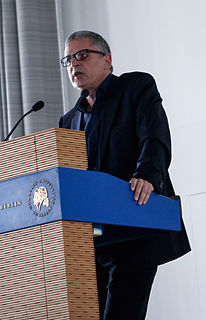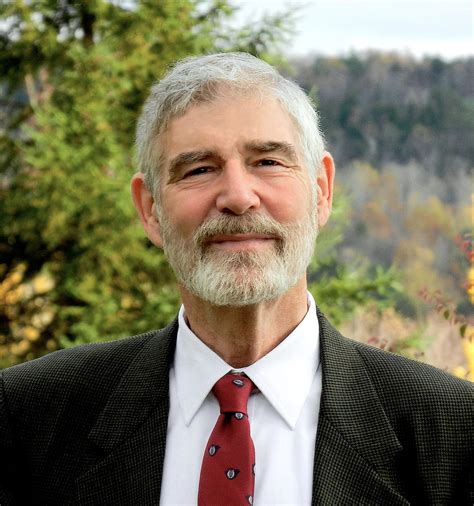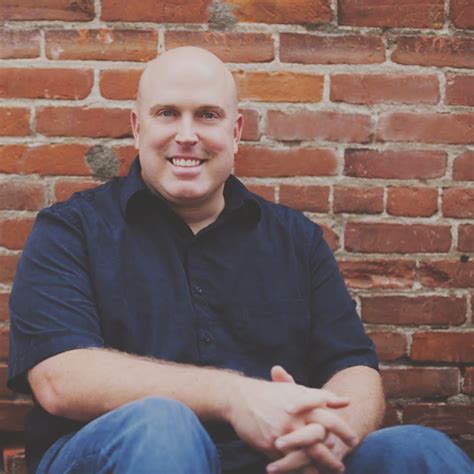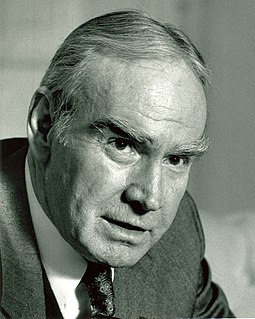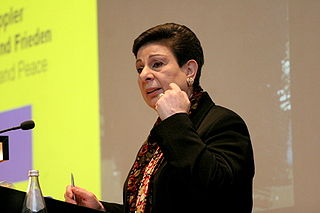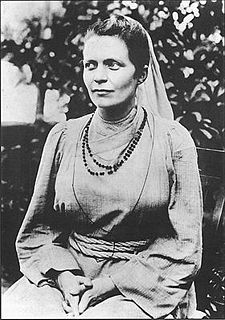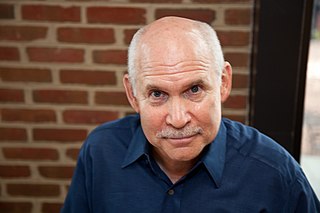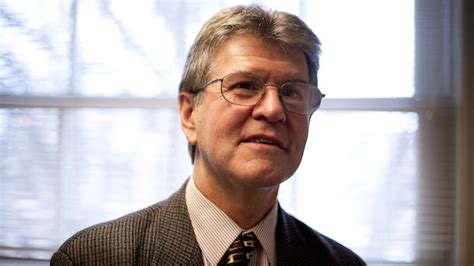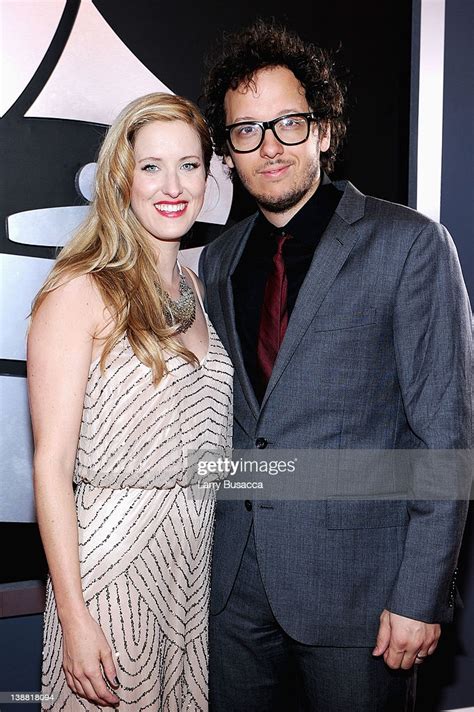Top 902 Secular Humanism Quotes & Sayings - Page 13
Explore popular Secular Humanism quotes.
Last updated on December 4, 2024.
Wouldn't it be a great thing if all who are well schooled in secular learning could hold fast to the "iron rod," or the word of God, which could lead them, through faith, to an understanding, rather than to have them stray away into strange paths of man-made theories and be plunged into the murky waters of disbelief and apostasy?
Amongst other our secular businesses and cures, our principal intent and fervent desire is to see virtue and cleanness of living to be advanced, increased, and multiplied, and vices and all other things repugnant to virtue, provoking the high indignation and fearful displeasure of God, to be repressed and annulled.
It is wrong for a secular government to promote prayer. We think the National Day of Prayer is unconstitutional. What if the president declared a National Day of Cursing God because He failed us on September 11? Americans would say, "You've overstepped your authority." That's how we feel when he promotes prayer.
And when the hourglass has run out, the hourglass of temporality, when the noise of secular life has grown silent and its restless or ineffectual activism has come to an end, when everything around you is still, as it is in eternity, then eternity asks you and every individual in these millions and millions about only one thing: whether you have lived in despair or not.
Quite interesting, North Korea is as if it's an entirely secular dictatorship. In North Korea you might think that was the case since it has an officially Communistic ideology, but it's not, it's the most religious state it's possible to imagine. It's actually two people who have been fused into one, maybe this is reminding you of something, there's the father and there's the son. It's one short of a trinity.
Torrents of blood have been spilt in the old world, by vain attempts of the secular arm, to extinguish Religious discord, by proscribing all difference in religious opinion. Time has at length revealed the true remedy. Every relaxation of narrow and rigorous policy, wherever it has been tried, has been found to assuage the disease.
I believe that the environment at home has been fairly secular and liberal. And most times, it comes from my mother. Our culture is very strong, but at the same time, she's a very free-spirited person. She's an artiste, and that's the environment I grew up in, where films and music were respected and meditated upon.
To pray is to pay attention to something or someone other than oneself. Whenever a man so concentrates his attention - on a landscape, a poem, a geometrical problem, an idol, or the True God - that he completely forgets his own ego and desires, he is praying. The primary task of the schoolteacher is to teach children, in a secular context, the technique of prayer.
In a society where rationality has ruled so long, the church frequently fails to see that in forsaking the weekly pursuit of the transcendent, we have given up the only ground that was uniquely ours in this world. In attempting to make the church something that can attract and add value to secular mind-sets, we have turned our backs on our one true proposition - transcendence.
I knew there would be some controversy over the 'Potter' series between religious people and secular-minded people - that was inevitable - what astonished me and continues to astonish me is the intense controversy that erupted very early on among Christians themselves, in all the churches. It cuts across every denominational line.
I think Kafka was right when he said that for a modern, secular, nonreligious man, state bureaucracy is the only remaining contact with the dimension of the divine; the impenetrable omnipotence of bureaucracy harbors is divine enjoyment. It is the performance of its very purposelessness that generates an intense enjoyment, ready to reproduce itself forever.
If within the last century art conceived as an autonomous activity has come to be invested with an unprecedented stature - the nearest thing to a sacramental human activity acknowledged by secular society - it is because one of the tasks art has assumed is making forays into and taking up positions on the frontiers of consciousness (often very dangerous to the artist as a person) and reporting back what's there.
Many books condemn 'secular' culture, just as many books advocate (consciously or unconsciously) accommodating ourselves to culture. Brett has written something much different: a biblically informed and culturally savvy approach to consuming culture in a God-honoring, community-building, and mission-advancing way.
In America, you keep on hearing productivity is low; secular stagnation, it's a new normal. It's just not true: We've had multiple wars; we're not educating our kids. We had government shut downs, badly-spent money, failures in the health system, failures and an extreme amount of regulation - that's why we're going slow.
The Pope was more critical of Christianity than Islam during his visit (to Bavaria). He said on several occasions that the secular world influenced by Christianity must face the idea that it may not be as attractive as it once was. The leaders of other faiths might also be well-advised to admonish their own now and then and not always direct their criticism at others.
Self-righteousness and presumptive moral judgments pose a great danger in the political arena. To become convinced of the divine infallibility of one's personal predilections on a secular political issue is to play God, to assume to oneself the attributes of deity. It cultivates an arrogant intolerance of dissenting viewpoints and relegates one's political adversaries to the category of evil per se.
The agreement is fundamentally that we want to try to resolve this. The agreement is that ISIL is a threat to everybody, and we need to come together to find a way to fight ISIL. The agreement is that we want to save Syria, keep it unified, keep it secular. So surely in those very fundamental principles on which we could agree.
The sad reality is that there are no purely domestic issues in Israel. Issues that would be dealt with by municipalities in other countries - such as how to deal with a dangerous bridge or how to resolve conflicts between religious and secular bus riders - become major international issues when they occur in Israel.
The same comparison holds true within the United States itself: Southern and Midwestern states, characterized by the highest levels of religious literalism, are especially plagued by [high rates of homicide, abortion, teen pregnancy, sexually transmitted disease, and infant mortality], while the comparatively secular states of the Northeast conform to European standards.
God, once imagined to be an omnipresent force throughout the whole world of nature and man. has been increasingly tending to seem omniabsent. Everywhere, intelligent and educated people rely more and more on purely secular and scientific techniques for the solution of their problems. As science advances, belief in divine miracles and the efficacy of prayer becomes fainter and fainter.
Absolutists frighten me. During all the endless discussions on my blog about evolution, intelligent design, God, and the afterworld, numbering altogether thousands of comments, I have never named my beliefs, although readers have freely informed me that I am an atheist, and agnostic, or at the very least a secular humanist - which I am.
My position on the issue of homosexuality is no different from the position of the Anglican Church and all the major denominations around the world. I know that it's different from the secular culture in the western world, but it's no different from the teaching of the church globally. We're Christians basically.
It's a flaw in our argument, for sure. By any reading of evolutionary theory, creationists ought to have died out ages ago. They serve no function in the planet's ecosystem, and no other species has survived so long while in such fundamental disagreement with observable reality. If I wasn't such an ardent believer in secular materialism, I'd wager this is really troubling Darwin in the afterlife.
For decades, since the mid-twentieth century, the nationalist movement, and Fatah in particular, has dominated the political scene. Palestinian politics were primarily nationalistic, secular. Now, suddenly we are seeing the election of a religious party with extreme political ideologies and with a social agenda that seems inconsistent with the cultural heritage of the Palestinian people.
Democrats are people who raise your taxes and spend your money on weird stuff. They steal your guns, and they spit on your faith. And because the Democratic Party was taken over by the aggressive secular guys, they became hostile not just to conservative Catholics and evangelical Christians, but Orthodox Jews and Muslims and Mormons.
If the many and the One be indeed the same Reality, then it is not all modes of worship alone, but equally all modes of work, all modes of struggle, all modes of creation, which are paths of realization. No distinction, henceforth, between sacred and secular. To labour is to pray. To conquer is to renounce. Life is itself religion. To have and to hold is as stern a trust as to quit and to avoid.
Your religion assumes that people are children and need a boogeyman so they'll behave. You want people to believe in God so they'll obey the law. That's the only means that occurs to you: a strict secular police force, and the threat of punishment by an all-seeing God for whatever the police overlook. You sell human beings short.
Differ though we might with Christianity's view of what precisely our souls need, it is hard to discredit the provocative underlying thesis, which seems no less relevant in the secular realm than in the religious one-that we have within us a precious, childlike, vulnerable core which we should nourish and nurture on its turbulent journey through life.
In religious and in secular affairs, the more fervent beliefs attract followers. If you are a moderate in any respect - if you're a moderate on abortion, if you're a moderate on gun control, or if you're a moderate in your religious faith - it doesn't evolve into a crusade where you're either right or wrong, good or bad, with us or against us.
I illustrate with a quotation from the atheist philosopher Richard Rorty, who died recently and is, I suspect, now having a lengthy conversation with his maker. Rorty argued that secular professors ought “to arrange things so that students who enter as bigoted, homophobic religious fundamentalists will leave college with views more like our own.
When two men of science disagree, they do not invoke the secular arm; they wait for further evidence to decide the issue, because, as men of science, they know that neither is infallible. But when two theologians differ, since there is no criteria to which either can appeal, there is nothing for it but mutual hatred and an open or covert appeal to force.
Gospel artists have to do something that secular artists don't always have to do and that's kind of abide by and reflect a certain set of values and morals. So everything that we do, every decision that we make, every picture that we take has a different weight on it. It's always interesting in balancing being an artist but being a minister as well.
Almost by definition, secularism cannot be a future: it's a present-tense culture that over time disconnects a society from cross-generational purpose. Which is why there are no examples of sustained atheist civilizations. "Atheistic humanism" became inhumanism in the hands of the Fascists and Communists and, in its less malign form in today's European Union, a kind of dehumamism in which a present-tense culture amuses itself to extinction. Post-Christian European culture is already post-cultural and, with its surging Muslim populations, will soon be post-European.
This is the humbling truth that lies at the heart of Christianity. We love to be our own saviors. Our hearts love to manufacture glory for themselves. So we find messages of self-salvation extremely attractive, whether they are religious (Keep these rules and you earn eternal blessing) or secular (Grab hold of these things and you’ll experience blessing now).
If by 'intellectual' you mean people who are a special class who are in the business of imposing thoughts and forming ideas for people in power, and telling people what they should believe...they're really more a kind of secular priesthood, whose task it is to uphold the doctrinal truths of the society. And the population SHOULD be anti-intellectual in that repect.
There's a culture war in this country. Americans in recent years, as you know, have become more secular. They don't go to church as often. Bible reading, prayers in public are now frowned upon. And, of course, in addition to that, a lot of people have become much more supportive of LGBT rights. And in reaction to that, biblically conservative Americans feel that their faith is under assault.
In India in particular, where millions have no home but the streets, virtually every life event is carried out in public: prayer, eating, sleeping, nursing, crude dentistry, even bodily functions. In the secular West, where nothing is sacred, everything seems hidden; yet in Asia, where nothing is hidden, everything is sacred.
It is essential that Christians understand this: Every Jew - secular, religious, assimilated, left-wing, right-wing - fears being killed because he is Jewish. This is the best-kept secret about Jews, who are widely perceived as inordinately secure and powerful. But it is the only universally held sentiment among Jews.
It is essential that Christians understand this. Every Jew, secular, religious, assimilated, left-wing, right-wing, fears being killed because he is Jewish. This is the best-kept secret about Jews, who are widely perceived as inordinately secure and powerful. But it is the only universally held sentiment among Jews.
Marriage is a unified institution. Marriage means a committed, legally sanctioned relationship between a man and a woman. That's what it means. That's what it means in the revelations. That's what it means in the secular law. You cannot have that marriage coexisting institutionally with something else called same-gender marriage. It simply is a definitional impossibility.
The core of the person is what he or she loves, and that is bound up with what they worship - that insight recalibrates the radar for cultural analysis. The rituals and practices that form our loves spill out well beyond the sanctuary. Many secular liturgies are trying to get us to love some other kingdom and some other gods.
The bad news is that the movement toward the partnership side of the social scale (and it is always a matter of degree, as no society is a pure partnership or domination system) has been fiercely resisted and countered by periodic regressions. So domination systems have rebuilt themselves in different forms - be they secular or religious, eastern or western, leftist or rightist.
Religion appears in so many contexts in WW1. Religion shaped the national identities and ambitions of several of the key players, especially Germany and Russia, both of which defined themselves as messianic nations. In both countries too, secular elites delved deeply into apocalyptic and prophetic ideas, giving their nations a millenarian bent.
Incidentally, the next time some war-mongering wise-ass tries to tell you that one reason we're in the Middle East is to enhance the civil rights and social equality of women, remind them that we very enthusiastically destroyed the most secular country over there, where women could dress as they liked, have good jobs, be literate, and vote.
The German philosopher Friedrich Wilhelm Nietzsche, who had syphilis, said that only a person of deep faith could afford the luxury of religious skepticism. Humanists, by and large educated, comfortably middle-class persons with rewarding lives like mine, find rapture enough in secular knowledge and hope. Most people can't.
Kafka's writings often display an insidious power to describe a wholly secular and "factical" world in which the eerie or "unheimlich" elements gang up behind or beneath the ego's awareness and immerse it in a waking dream of something Other, an alien world-order similar to ancient irrationalist cultures (in transition from primitivism to civilized mythos-culture).

